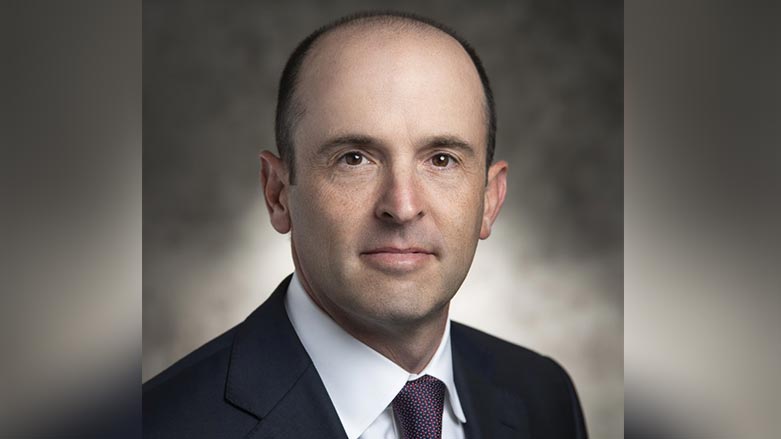Kurdistan Region is America's largest partner in security and energy: Matthew Zais

ERBIL (Kurdistan 24) – Matthew Zais, former assistant to the US Secretary of Energy and the current vice president of KHN, said that the Kurdistan Region represents the largest partner of the United States in terms of security and energy, calling on Washington to use its diplomatic tools to preserve its interests in the region.
The call came in an article written by Zais - who previously served as the first deputy assistant in the Office of International Affairs in the US Department of Energy - on the website ‘Real Clear Energy’, which specializes in analysis in the field of energy.
Zais highlighted US interests in the Middle East, noting that they are still being attacked by Iranian-backed groups.
The author cited the attacks carried out by Iraqi militias in recent weeks on the largest gas facilities in the Kurdistan Region, which are "partially funded" by the US government.
He also said “Iran isn’t relying just on its Iraqi militias to attack Kurdistan’s energy sector. It has also effectively weaponized Iraq’s courts to prevent a new government in Baghdad from forming without Iranian-backed parties.”
“In doing so, its long-term aim is to reverse Iraqi federalism and financially strangle Kurdistan’s energy sector. So far, the strategy is working: Iraq is without a government 10 months after national elections, and its ministries and courts are unhindered from a constitutionally seated government,” he added.
Zais explained that recently, Iraq’s commercial court ruled that contracts between the Kurdistan Regional Government and four American and European international oil companies are invalid, a move that threatens almost 200,000 barrels of Kurdistan’s 450,000 barrels of exports per day.
Zais pointed out that “UAE and Russian companies, including Rosneft and Gazprom, have been spared any legal challenges. The same is true for international companies that Baghdad seeks to retain in southern Iraq, such as Total and Chevron. Iraq also recently blacklisted key service companies operating in Kurdistan, including Haliburton and Baker Hughes; Exxon is the latest “super major” to exit Iraq, where contract terms don’t justify future investment and are some of the worst in the world.”
"Iran’s attempted takeover of Kurdistan comes at a time when global oil markets remain tight” says Zais, an assistant professor at the US Military Academy of International Relations and Foreign Policy. As for Iraq, the writer says, "it faces its own enormous energy challenges, including its inability to meet future production quotas and its dependency on Iranian gas imports."
"So why is Iran moving now to decapitate the Kurdistan Region’s energy sector – and what role can and should the U.S. play in this ongoing crisis?" Zais asked.
He continued his speech by saying, “Iran’s ultimate objective is to reverse Iraqi federalism, as codified in the U.S.-brokered Iraqi Constitution, which provides Kurdistan semi-autonomy and the ability to develop future energy resources.”
He also indicated that “this arrangement has attracted foreign investment in Kurdistan, including the only U.S.-financed energy projects in all of Iraq. The Kurdistan Region therefore stands out as America’s greatest security and energy partner, which inherently threatens Iran’s regional goals.”
Zais says, "the future of Kurdistan and Iraq is at stake, and the United States has a range of diplomatic, economic, and military tools at its disposal.”
"The U.S. role in Iraq must match realities on the ground. Kurdistan remains our trusted security partner and the only place in Iraq where the American government has financed energy projects. The U.S. can no longer allow Iran to erase America’s 30-year security and energy partnership with Kurdistan. We have played a critical role in creating the Kurdistan Region, and now we must protect it," Zais concluded.
